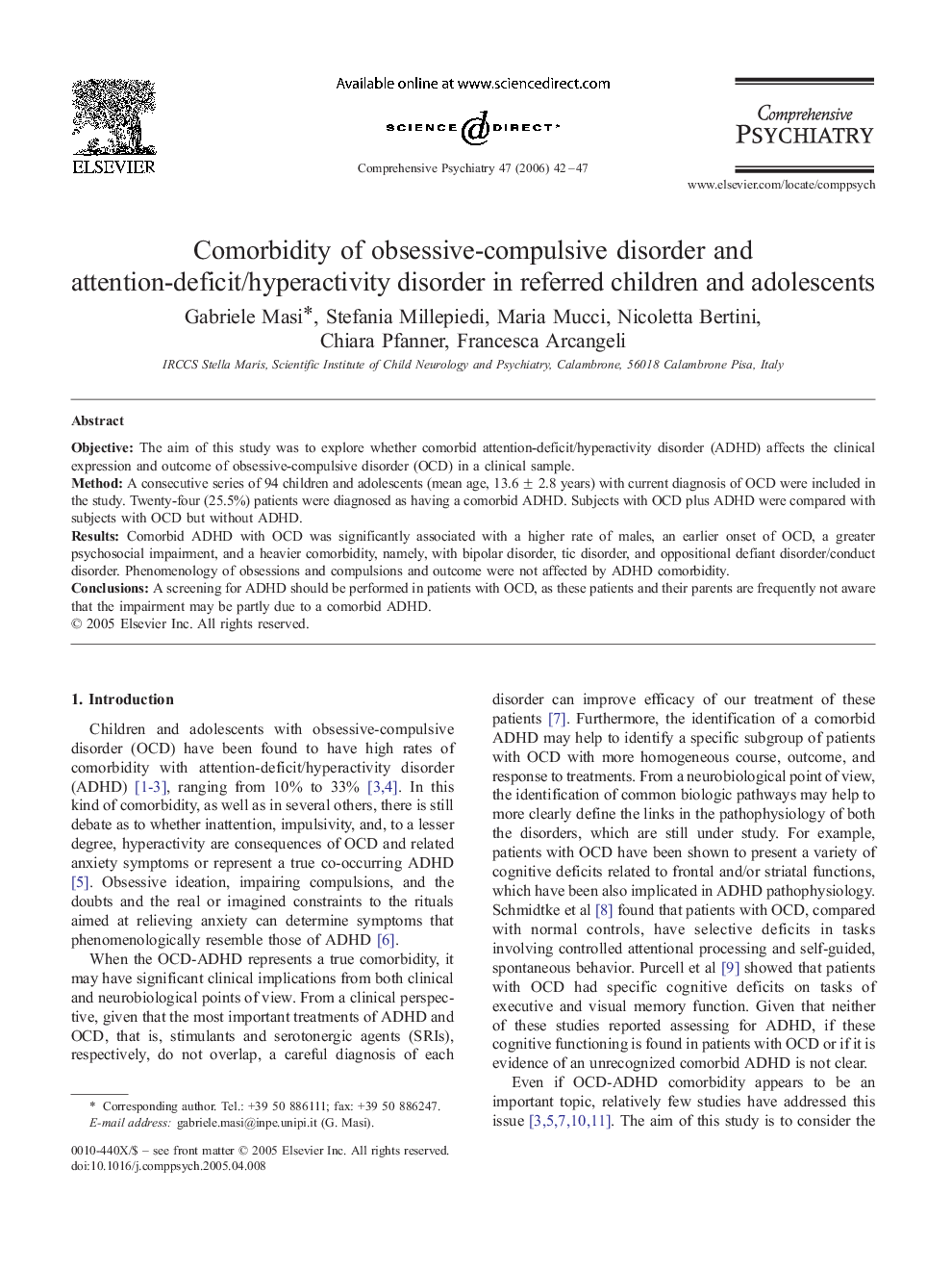| Article ID | Journal | Published Year | Pages | File Type |
|---|---|---|---|---|
| 316884 | Comprehensive Psychiatry | 2006 | 6 Pages |
ObjectiveThe aim of this study was to explore whether comorbid attention-deficit/hyperactivity disorder (ADHD) affects the clinical expression and outcome of obsessive-compulsive disorder (OCD) in a clinical sample.MethodA consecutive series of 94 children and adolescents (mean age, 13.6 ± 2.8 years) with current diagnosis of OCD were included in the study. Twenty-four (25.5%) patients were diagnosed as having a comorbid ADHD. Subjects with OCD plus ADHD were compared with subjects with OCD but without ADHD.ResultsComorbid ADHD with OCD was significantly associated with a higher rate of males, an earlier onset of OCD, a greater psychosocial impairment, and a heavier comorbidity, namely, with bipolar disorder, tic disorder, and oppositional defiant disorder/conduct disorder. Phenomenology of obsessions and compulsions and outcome were not affected by ADHD comorbidity.ConclusionsA screening for ADHD should be performed in patients with OCD, as these patients and their parents are frequently not aware that the impairment may be partly due to a comorbid ADHD.
